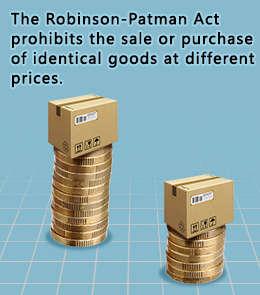 When independent bookstore buyers venture beyond the fields we know, beyond the familiar world of trade books and out into the strange domain of educational publishers, we find that things are not only unfamiliar but at times unwholesome. I venture there often and am here to report on a particularly thorny problem: the need to acquire books for schools at terms significantly worse than what the schools could acquire them for directly. I also aim to offer a solution. In order to help cast this murky issue into a clear light, I have called upon none other than Socrates himself to assist me.
When independent bookstore buyers venture beyond the fields we know, beyond the familiar world of trade books and out into the strange domain of educational publishers, we find that things are not only unfamiliar but at times unwholesome. I venture there often and am here to report on a particularly thorny problem: the need to acquire books for schools at terms significantly worse than what the schools could acquire them for directly. I also aim to offer a solution. In order to help cast this murky issue into a clear light, I have called upon none other than Socrates himself to assist me.
Socrates: Why have you summoned me, Kenny?
 Kenny: Suppose you were traveling with a dog and had to stay at a hotel that didn’t allow pets. That is the situation independent bookstore buyers often find themselves in when dealing with school purchase orders.
Kenny: Suppose you were traveling with a dog and had to stay at a hotel that didn’t allow pets. That is the situation independent bookstore buyers often find themselves in when dealing with school purchase orders.
Socrates: How so?
Kenny: Some hotels are pet friendly. Others are not. The same is true of educational publishers and independent booksellers.
Socrates: Why is that a problem? Can’t you just choose independent bookstore friendly educational publishers?
Kenny: First of all, even in cases where there is a choice of supplier there are efficiency issues. When traveling with a dog it is not efficient to drive up to, or call individual hotels to ask and find out whether they are pet-friendly or not. This is the current positions bookstore buyers find themselves in. There is no easy reference for determining whether an education specialty publisher is independent bookstore friendly or not. Their terms are not listed in the ABA Book Buyer’s Handbook, for example.
Socrates: That sounds more like a minor annoyance than a big problem. Why does this require any action?
 Kenny: Because we are often in a situation where choice is either not possible or difficult. Bookstore buyers working with purchase orders from schools that call for books from educational publishers are routinely confronted with the mordant evil of unworkable terms. We should therefore do something about that because, as Gandalf pointed out, it is our task to do “what is in us for the succour of those years wherein we are set, uprooting the evil in the fields that we know, so that those who live after may have clean earth to till.”
Kenny: Because we are often in a situation where choice is either not possible or difficult. Bookstore buyers working with purchase orders from schools that call for books from educational publishers are routinely confronted with the mordant evil of unworkable terms. We should therefore do something about that because, as Gandalf pointed out, it is our task to do “what is in us for the succour of those years wherein we are set, uprooting the evil in the fields that we know, so that those who live after may have clean earth to till.”
Socrates: True, but how is that evil involved and how does it work in practical terms?
Kenny: I think it will be best to provide an example.
I was recently given a very large school purchase order to work on. The school librarian had made the laudable decision to give DDG all her business this year, including the segment of her ordering that had gone to an Educational Wholesaler in the past. The order I was given was a printout from Supplier so I could see both the materials and the relative pricing I needed to provide. The order included two themed sets of books, one of pet books, and one of construction and community vehicles. The individual books were $17.99 each. Checking on Ingram I could see that they were $27.13 with a 35% discount, or $17.63, no real margin. I called the publisher and the following conversation with the sales person ensued.
Self: I’d like to check on the price, availability, and discount on the following title.
Sales Person: It’s $27.13 with a 20% discount.
 Self: Hmmn. That’s $21.74 plus freight. You are charging libraries $17.99. That math doesn’t work.
Self: Hmmn. That’s $21.74 plus freight. You are charging libraries $17.99. That math doesn’t work.
Sales Person: I’ll tell you what. I’ll give you 30%.
Self: I appreciate that but it is still over the library’s cost.
Sales Person: I’ll give you the library’s price.
Self: With freight that’s still over cost.
Sales Person: Okay, I’ll tell you what. I’ll give it to you at the Library’s cost and free freight.
Self: That is still higher than what it is being resold for at Ingram Book Company. What are your published terms of sale, your discount rates by volume?
Sales Person: It varies from customer to customer.
Thoughts of Self: (Hmmn. I can’t believe I’m hearing this. That’s a total violation of the Robinson-Patman act.)
Self: (ALMOST SAYS: – So it’s one price for Robinson and another for Patman?) ACTUALLY SAYS: I see. Thank you. So if I do have an order to place do I need to speak to you to get those terms or are those standard terms that anyone who answers the phone will give me?
Sales Person: You should probably ask for me.
The thing is, even the best offer made to appease me was essentially net price. Also, their standard terms were terrible. I was appalled enough to spend the time to find comparable or better quality books to show my customer in place of these books. This was some work. There were some good trade options but only in paperback. The books had to be at least hardcover and preferably library bound.
 In the end I did find some terrific comparables from an educational publisher called Jump! which had two quality book series with the content I needed, My First Pet, and Machines at Work. My librarian friend was thrilled to switch to the Jump! books since they had the format, reading levels, and high interest content which she was looking for, at the right price. I was thrilled to switch to Jump! because their salespeople were knowledgeable and nice, and their terms to me were far from evil: 50% off the library price of $17.99.
In the end I did find some terrific comparables from an educational publisher called Jump! which had two quality book series with the content I needed, My First Pet, and Machines at Work. My librarian friend was thrilled to switch to the Jump! books since they had the format, reading levels, and high interest content which she was looking for, at the right price. I was thrilled to switch to Jump! because their salespeople were knowledgeable and nice, and their terms to me were far from evil: 50% off the library price of $17.99.
My point here is that for those of us who are working hard to fill school purchase orders, the lack of a good reference as to the terms of individual educational specialty publishers to independent bookstores makes a good deal more work for us. We are often in the position of encountering requests for books that are on offer to us at unworkable terms and have to expend valuable time to find to locate comparable books from friendly sources.
Socrates: All right, all right, I get it. What’s the solution?
Kenny: There are two possibilities. One is a subcategory within the ABA Book Buyer’s Handbook for Educational Publishers, listing terms and specialties. This would be invaluable and worth the effort to set up. If the Book Buyer’s Handbook is not the right forum for this information, then ABC could make a simple database for it. In fact, I think a group of volunteers could readily be found to contribute information and terms regarding the Educational Publishers. I know I would help.

Sounds wonderful. It would be fantastic to have a resource like that available, Kenny. I do see a couple problems, though. #1) The ABA Book Buyers’ Handbook is dependent upon the publishers providing their information. Many publishers are less than fastidious in keeping their listings up to date. #2) Since many of the educational outfits seem so “fluid” with their discounts and terms, it might be impossible to pin them down in the first place.
I had to order books recently for a Maine State Dept of Education conference. It took all day to order one of the books from an “educational publisher”. I talked to 4 different people and got 4 different sets of terms, before I finally placed the order. They are so out of touch with retail that I had to explain what I meant when I asked about “dating” vs the prepay they asked for initially. Not sure how we can educate them to actually work with us instead of against us.
I totally agree Ellen. It could not be publisher maintained like the trade entries are now. My thinking is that the number of entries are relatively small and that perhaps the Handbook would be a good place for the sub-category. On the other hand it might be better maintained as a separate ABC resource. In terms of educating them, the idea here is two fold, educate however much is possible, but also inform ourselves as to which suppliers are best to work with when looking for comparables or pricing things out.
Issue for me was that there were no comparables. They wanted a very specific text which this company publishes. First it was pre-pay and a (very) short discount. Then I was assured, “Yes, you can return extras after the event.” But, as infrequently as I have to order from them, a credit would have been essentially useless to me and “No, we don’t give money back.” Then the discount got a bit better and they’d give 30 days, but they still wanted my CC#. Finally, they’d waive the CC# if I sent a PO. (As if a PO that I created carried any more authority than my verbal order.)
The deal was finally struck, but it took 8 hrs to negotiate. And with a short(ish) discount, I’m not sure it was at all profitable.
Understood. There is also the relationship factor to consider along with the isolated prfit of one transaction. If the effort and narrow margin of one school order will solidify or grow my relationship with a school partner then it is worth doing. That is why I think making a reference would be so valuable, to save us time so that we can do commercial outreach with more ease and profit.
Important subject to address. At the very least, shine a light on the (illegal) terms, and hold up a few exemplars. Understood that Educational Publishers have to cover costs, too, but they’ll never survive on what little they manage to scrape away from independent booksellers, so why bother? How much has to do with the cost of distribution? How much of the field is, like pharmaceuticals, a matter of developing lots of product and hoping for an occasional hit that pays for everything else? Just sell one title to Texas, Florida, or California, and Eureka!
Good points Carol. My store has many small pots on the stove, none of which would individually insure survival. It is an aggregate. I would argue that maximizing the revenue stream from independent bookstores is at least worth enabling for these publishers. Right now the irrelevance of the lack of profits from independent bookstores is a self fulfilling prophecy. It is in our clear interest to press against that vacuum.
Find a partner that works exclusively in the PK-12 market and buy the books from the partner at better terms then you are getting direct. I have a completely separate business that does nothing but work with folks like your self so everyone wins. ben@classroomlibrarycompany.com